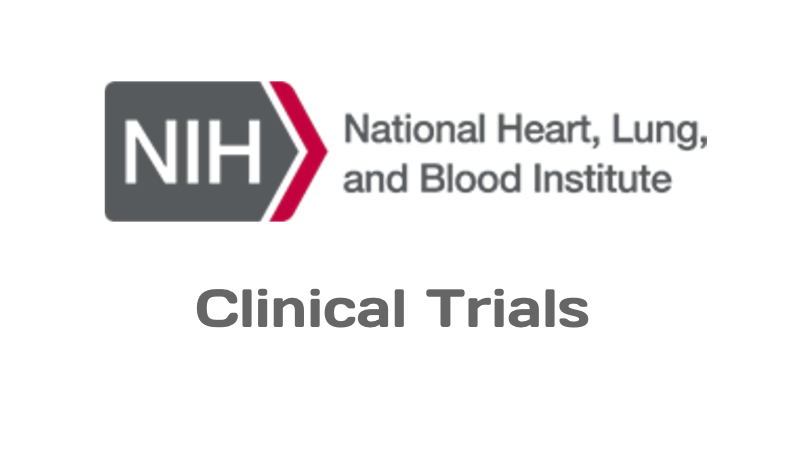Summary
The National Heart, Lung, and Blood Institute (NHLBI) is strongly committed to supporting research aimed at preventing and treating heart, lung, and blood diseases and conditions and sleep disorders.
The NHLBI continues to support research aimed at learning more about sleep disorders, including insomnia. For example, the NHLBI currently is involved in research comparing two nondrug, self-help treatments for insomnia.
OnAir Post: NHLBI Research
Summary
The National Heart, Lung, and Blood Institute (NHLBI) is strongly committed to supporting research aimed at preventing and treating heart, lung, and blood diseases and conditions and sleep disorders.
The NHLBI continues to support research aimed at learning more about sleep disorders, including insomnia. For example, the NHLBI currently is involved in research comparing two nondrug, self-help treatments for insomnia.
NHLBI clinical trials
The NHLBI also supports research that explores the factors that affect sleep, how a lack of sleep increases certain health risks, and new ways to diagnose and treat sleep disorders.
Much of this research depends on the willingness of volunteers to take part in clinical trials. Clinical trials test new ways to prevent, diagnose, or treat various diseases and conditions.
For example, new treatments for a disease or condition (such as medicines, medical devices, surgeries, or procedures) are tested in volunteers who have the illness. Testing shows whether a treatment is safe and effective in humans before it is made available for widespread use.
By taking part in a clinical trial, you can gain access to new treatments before they’re widely available. You also will have the support of a team of health care providers, who will likely monitor your health closely. Even if you don’t directly benefit from the results of a clinical trial, the information gathered can help others and add to scientific knowledge.
If you volunteer for a clinical trial, the research will be explained to you in detail. You’ll learn about treatments and tests you may receive, and the benefits and risks they may pose. You’ll also be given a chance to ask questions about the research. This process is called informed consent.
If you agree to take part in the trial, you’ll be asked to sign an informed consent form. This form is not a contract. You have the right to withdraw from a study at any time, for any reason. Also, you have the right to learn about new risks or findings that emerge during the trial.
For more information about clinical trials related to insomnia, talk with your doctor. You also can visit the following Web sites to learn more about clinical research and to search for clinical trials:
- http://clinicalresearch.nih.gov
- www.clinicaltrials.gov
- www.nhlbi.nih.gov/studies/index.htm
- www.researchmatch.org(link is external)
For more information about clinical trials for children, visit the NHLBI’s Children and Clinical Studies Web page.
Insomnia Clinical Trials
Learn more about other insomnia trials and how to participate in a clinical trial.
The National Center on Sleep Disorders Research (NCSDR)
Located within the National Heart, Lung, and Blood Institute (NHLBI) of the National Institutes of Health (NIH), was established in 1993 to combat a serious public health concern. About 70 million Americans suffer from sleep problems; among them, nearly 60 percent have a chronic disorder. Each year, sleep disorders, sleep deprivation, and sleepiness add an estimated $15.9 billion to the national health care bill. Additional costs to society for related health problems, lost worker productivity, and accidents have not been calculated. Sleep disorders and disturbances of sleep comprise a broad range of problems, including sleep apnea, narcolepsy, insomnia, parasomnia, jet-lag syndrome, and disturbed biological and circadian rhythms.
The Center seeks to fulfill its goal of improving the health of Americans by serving four key functions: research, training, technology transfer, and coordination.
Research
Sleep disorders span many medical fields, requiring multidisciplinary approaches not only to treatment, but also to basic research. The Center works with neuroscientists, cellular and molecular biologists, geneticists, physiologists, neuropsychiatrists, immunologists, pulmonary specialists, cardiologists, epidemiologists, behavioral scientists, and other experts. Ongoing research is supported by the NIH and other Federal agencies.
Training
Training researchers in sleep disorders is rigorous and time-consuming. The Center seeks to support and promote formal training programs on the doctoral and postdoctoral levels. It also plans to expand existing career development paths and create new training programs for scientists in sleep disorders research.
Technology Transfer
The Center seeks to ensure that research results lead to health benefits. It works towards this goal by educating health care professionals about sleep disorders and research findings, encouraging medical schools to add sleep disorders to their curricula, working with leading experts to develop clinical guidelines, and sponsoring continuing medical education programs.
Coordination
The Center coordinates the Federal Government’s efforts on sleep disorders and works closely with other public, private, and nonprofit groups. The Center works to share information among these groups and encourage their cooperation, especially in crosscutting areas. It also seeks to improve communication among scientists, policymakers, and health care professionals.
Links
- Children and Clinical Studies
- Clinical Trials (Health Topics)
- Current Research (ClinicalTrials.gov)
- NHLBI Clinical Trials
- NIH Clinical Research Trials and You (National Institutes of Health)
- ResearchMatch(link is external) (funded by the National Institutes of Health)
- Sleep Heart Health Study(link is external) (supported by the NHLBI)



